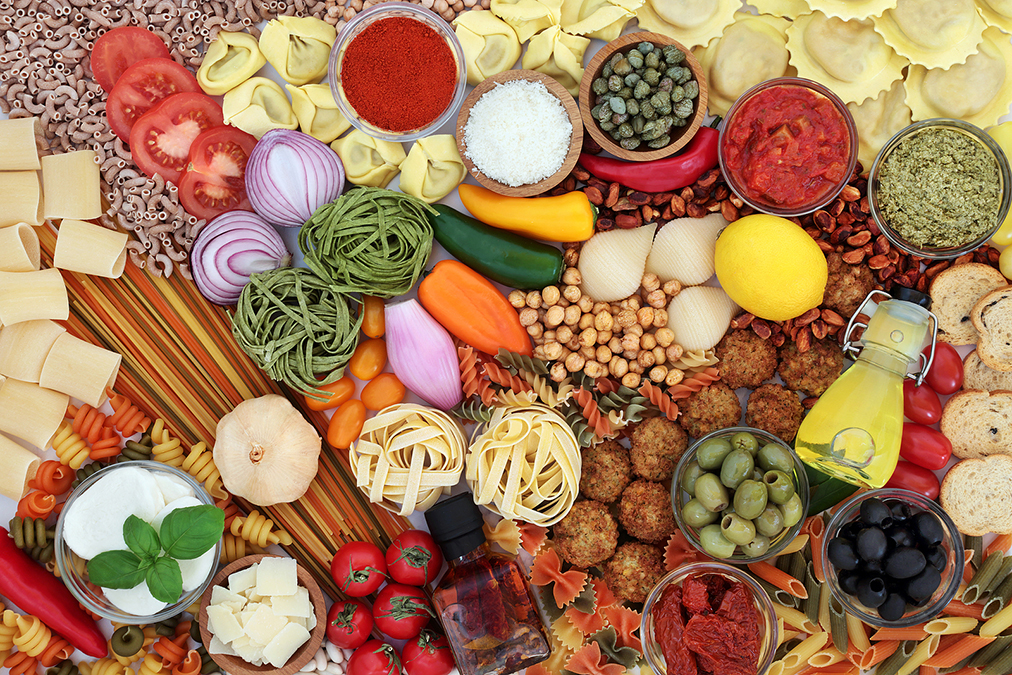 There are hundreds of studies out there which research how different types of food interact with arthritis. Some improve it, other make it much worse.
There are hundreds of studies out there which research how different types of food interact with arthritis. Some improve it, other make it much worse.
But with most of these studies focusing on one type of food or one type of diet, there has not yet been an overview of what helps and what harms.
This all changed with a new study in the journal Clinical Nutrition Open Science.
This study reviewed hundreds of reliable studies on food and arthritis and produced 11 points to follow when eating for arthritis health.
There are several reasons to think that healthy dieting could treat rheumatic diseases like rheumatoid arthritis. After perusing the literature, the authors of this study identified the following:
-
1. A third of deaths due to autoimmune diseases stem from heart disease.
2. People with rheumatic diseases are more likely to have atherosclerosis (blocked arteries), diabetes, high cholesterol, insulin resistance, and high body weight, all of which can be tackled by healthy dieting.
3. As gut bacteria seem to be involved in rheumatic diseases, diets that influence these bacteria may be effective.
4. Food can reduce inflammation and oxidative damage.
In addition, people with rheumatic diseases complain that they don’t receive nutritional advice from their doctors and don’t know what to eat and avoid.
In response, these scientists consulted the available literature to find out which diets could be useful to treat rheumatic diseases such as rheumatoid arthritis.
They made many interesting discoveries:
-
1. When eaten as part of a diet such as the Mediterranean diet, monounsaturated fats can lead to disease remission. These fats include olive oil, canola oil, and avocado, together with nuts such as almond, cashew, macadamia, peanut, and pecan.
2. High daily vegetable intake, but not fruit intake, is associated with low disease activity and better arterial function.
3. Specific foods such as spinach and berries have been found to reduce disease severity.
4. Fasting followed by a vegetarian diet can reduce inflammation and pain in rheumatoid arthritis patients.
5. A 4-week low-calorie, low-fat, vegan diet can reduce symptoms and body weight in arthritis patients.
6. A 1-year gluten-free, vegan diet that contains plenty of whole grains can reduce arthritis severity, cholesterol, and inflammation.
7. The Mediterranean diet can improve pain and physical function in people with rheumatoid arthritis.
8. A low-inflammatory diet packed with omega-3 fats, fiber, and probiotics improve symptoms, but does not slow down the disease on tissue scans.
9. Diets that eliminate foods that often cause allergies are not effective in the general population, but they are effective in some subgroups of patients. These include diets that eliminate milk, eggs, wheat, and spices.
10. The studies on the effects of alcohol are mixed, with some reporting an improvement and others reporting adverse effects.
11. Suites, desserts, and sugary drinks worsen disease activity and symptoms.
The most important aspect of this study was the evidence that diet could drastically improve, even reverse arthritis.
But what’s lacking in this study is simple step-by-step guidance on what exactly to eat and a solid strategy to reverse arthritis. Thousands of readers have, however, used the easy steps explained here to eliminate their arthritis in 28 days or less…

 Overcoming IBD
Overcoming IBD Multiple Sclerosis
Multiple Sclerosis Banishing Bronchitis
Banishing Bronchitis Gum Disease Gone
Gum Disease Gone Overcoming Onychomycosis
Overcoming Onychomycosis Neuropathy No More
Neuropathy No More The Prostate Protocol
The Prostate Protocol Brain Booster
Brain Booster
 Ironbound
Ironbound
 Solution for Shingles
Solution for Shingles
 The Bone Density Solution
The Bone Density Solution
 The Ultimate Healing Protocol
The Ultimate Healing Protocol
 The Parkinson's Protocol
The Parkinson's Protocol
 The Chronic Kidney Disease Solution
The Chronic Kidney Disease Solution
 Overthrowing Anxiety
Overthrowing Anxiety The Fatty Liver Solution
The Fatty Liver Solution The Hypothyroidism Solution
The Hypothyroidism Solution
 The End of Gout
The End of Gout The Blood Pressure Program
The Blood Pressure Program
 The Oxigized Cholesterol Strategy
The Oxigized Cholesterol Strategy
 Stop Snoring And Sleep Apnea Program
Stop Snoring And Sleep Apnea Program
 The Arthritis Strategy
The Arthritis Strategy The Vertigo & Dizziness Program
The Vertigo & Dizziness Program The 3-Step Diabetes Strategy
The 3-Step Diabetes Strategy Hemorrhoids Healing Protocol
Hemorrhoids Healing Protocol The Erectile Dysfunction Master
The Erectile Dysfunction Master Weight Loss Breeze
Weight Loss Breeze The IBS Program
The IBS Program The Insomnia Program
The Insomnia Program The Migraine and Headache Program
The Migraine and Headache Program The Neck Pain Solution
The Neck Pain Solution The Menopause Solution
The Menopause Solution The Ejaculation Master
The Ejaculation Master The TMJ Solution
The TMJ Solution The Acid Reflux Solution
The Acid Reflux Solution The Fibromyalgia Solution
The Fibromyalgia Solution The Psoriasis Strategy
The Psoriasis Strategy